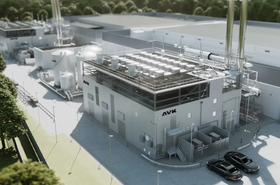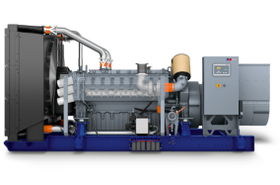In case you haven’t heard the numbers, the latest forecasts bear repeating as they have such significance, not just for our industry, but for society at large. European data center capacity has risen by 22 percent in the last year to exceed the 10GW mark.
Take-up is set to grow at its fastest rate in four years this year, and for the third year in a row supply will fail to keep up with demand, pushing up prices and moving the deal-making zone for data center providers further into the future.
The industry is responding with its usual resourcefulness. The development pipeline has grown by 43 percent in the last year, with 2.6GW under construction and 25GW of new capacity forecast by 2030. Capital is flowing in fast to build this pipeline, and annual investment is forecast to double to almost €100 billion by 2030.
However, at the same time, the challenges are getting bigger. Facilities are larger than ever, they are more geographically distributed than in the FLAP days, and they need to meet much stricter environmental criteria, some local, some self-imposed and many EU-wide.
And, as the grids of Europe creak under the demands of a wholesale transition to net zero, the single most challenging feature for any successful AI-focused development is power.
Here are a few ways in which power solution providers can address these challenges and support the sector´s ambitious growth.
Scale up to keep up
It’s an exciting time to be providing power solutions to one of the fastest-growing sectors in the world, but you have to invest for growth. We have expanded our services and developed new solutions, and today, we are the UK´s leader in innovative power solutions.
We are also becoming a major player in data center energy solutions across Europe. We have provided over 3.5GW of power solutions in over 300 projects, and are now supported by a 300-strong team with some 20,000 years of experience between them.
This spring we set up a new service hub in Lelystad in the Netherlands. Next in line is Frankfurt, still second only to London in terms of capacity growth. As in London, Dublin, and Lelystad, our Frankfurt hub will offer local warehousing, critical spares and expert technicians.
For multi-country solution providers like AVK, I believe it is critical to invest in distributed, well-staffed service infrastructure to provide the highest levels of in-country support for data center customers as they expand. A dedicated team of technicians expands our local service capability (for instance for the selective catalytic reduction (SCR) systems we install for clients), enhances responsiveness, improves logistics and strengthens relationships.
These investments take our current European office footprint to eight, to support our growing spread of client projects. More will be needed. Today, we have projects in Sweden in the north and Spain in the south, Ireland in the west and Turkey in the east. There are more support hubs in the pipeline to support existing and future customers across Europe.
Invest in people
Everyone acknowledges that there is a serious skills gap in the technical side of the data center industry. The average age of a UK engineer is now 54, and with little succession planning in place, this gap risks becoming a skills chasm in data center engineering unless we can attract and support the ambitions of candidates from Gen Z, an issue we have explored in some depth in a series of interviews.
Considering the pace of forecast growth, this is a dangerous situation. We should be doing something about this now rather than later, with a focus on the critical, and evolving, skillset required for power provision and data center operation.
For instance, our new service hubs will support the international roll out of the AVK Academy. This is a dedicated training center that plays a vital role in developing the next generation of data center engineers.
Equipped with state-of-the-art technology, including full-size Rolls-Royce mtu engines and control system rigs, the academy recreates real-world scenarios, ensuring that trainees gain the practical experience required to build successful careers.
Data center build, power provision, and operation is one of the most promising and satisfying career paths, but it is relatively new and requires investment by the industry to formulate and facilitate world-class courses.
To close the skills gap, we need to offer structured training programmes certified by national educational authorities that cater for every level of experience, from beginners embarking on their careers to seasoned professionals seeking new advanced skills.
Think bigger
A huge amount of innovation is taking place in our industry as we tackle the twin challenges of rising power requirements and a managed transition to net zero. Bold thinking and new business models will be required to balance these challenges, and suppliers who innovate are more likely to succeed, while benefiting the data center sector as well as the environment.
AI itself, while driving the power demand, will also be a hugely useful tool in developing, testing and launching these innovations.
Renewable fuels for backup such as HVO are already available and there is seldom a good excuse for not using them. New fuels such as hydrogen, biomethane, methanol, and ethanol are also gradually coming onstream. To minimise emissions, power solution providers need to ensure that they provide the best possible power delivery mechanisms with a future carbon-free fuel map built in.
Creating flexible dispatchable power assets which contribute to grid stabilisation and accelerate net zero also represents a huge opportunity for the industry, and simultaneously solves the current power constraint issues for the industry.
In the EUDCA’s recent State of European Data Centers 2025 report, four percent of colocation and hyperscale operators interviewed said that microgrids are already a realistic option for them, 14 percent said they will be in two years, and a further 36 percent said they will be in five years.
We have been conducting new research on this topic with one of our partners, to find the ideal mix of fuel and test the economics of large-scale behind-the-meter generation. I believe that innovative power solution providers will be able to fill a new role here in managing the build and maintenance of microgrid-generated power at the same time as trading it on behalf of data center customers to support Europe’s grids during transition.
Generating new benefits
Over the last five years the European data center power solutions sector has enjoyed exceptional growth while improving overall efficiency and keeping environmental impacts low. The next five years look even more exciting, with even greater potential to expand the digital economy while generating economic, social and environmental benefits.
Strategic investment in customer service and sector skills will be key, as well the development of bold new solutions based on new fuels and technologies, and creating new and innovative models to provide power for data center growth at the same time as actively supporting the grid.
More from AVK

Sponsored
New appointment bolsters AVK’s commitment to sustainability across the data center sector

Sponsored
From UPS to AI: Why Bob Downing believes microgrids are the future of power
AVK’s VP of sales discusses the critical tradeoff between resilience and sustainability in data center energy solutions, balancing reliability with the push for greener technologies

Rolls Royce has supplied more than 500 generators to AVK
Read the orginal article: https://www.datacenterdynamics.com/en/opinions/powering-european-data-center-growth/



